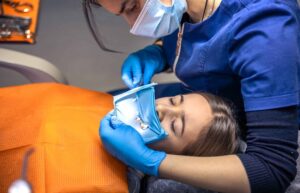How to Survive a Medical Residency
3 min read
For budding physicians, graduating med school is a watershed moment (of course), but for several more reasons than you might imagine. Not only is this the point when you start actually being responsible for other lives, but it is also that time when your “medical experience” really begins. For some healthcare professionals, this takes the form of starting a role within a healthcare institution, For the vast majority of recent physician graduates though, it’s the time to get started on your medical residency.
It is very much a good thing that medical residencies exist. This is when you can take on some of the real work without the pressure of the real responsibilities. Seen in this light, it might well seem that medical residencies should be something comforting for med school graduates – but they can also be incredibly stressful, too.
The reason for this is nothing more complicated than the fact that this is something a medical graduate will not have done before, and they will be just as much in contact with real patients as any doctor who has been on the job for twenty years. The only real difference is that the medical resident is still learning. Accordingly, medical residencies can be challenging, but there are tips out there to help you get through yours.
The Benefit of Experience
Health Jobs Nationwide, online jobs board specialists offering, among other things, registered nurse jobs, say that there are benefits to working in a medical residency beyond the fact that it is an extension of medical education. A medical residency counts as experience, you will be appraised, you can put it on your resume, and you will learn skills that could also show up very nicely in the recruiter’s inbox tray.
Such is the benefit of the experience you gain when doing your medical residency. And if you’re planning to follow a medical specialty, this is the first point of your “career” when you will be able to diversify your role in this way. This is the time when you can really start learning the day-to-day specifics of your residency and really find out if it is for you. You don’t have this opportunity when you are still attending med school.
Tips for Surviving Your Medical Residency
However, there is no denying that it can be challenging. Here follows some useful survival tips:
Be As Well Prepared as If You Were Fully Employed
This means making sure you know what you’re talking about. You should always “know what you’re talking about” – it’s the “doing” that you learn on a residency.
Develop a Thick Skin
Patients are a very mixed bag when it comes to how they treat you, and this is something which (except in extreme cases of assault or very serious verbal abuse) you simply need to learn how to take. Patients will see you as a fully qualified physician when you’re on your residency, and they will treat you as such.
Learn About Your Role
Everyone will have ups and down on a residency. An important tip is to learn which of those downs you are willing to take as an essential part of your role, and which of those ups make it all worthwhile.
Be Prepared for Mistakes
There is no getting around it, you are going to mess up on occasion and there will be consequences for the healthcare you are providing. So long as they are not too severe though, this is simply part of the learning process.
Many graduates worry themselves sick over the residency, but it’s a last and vital step on the path to discovering who you are as a healthcare professional.







